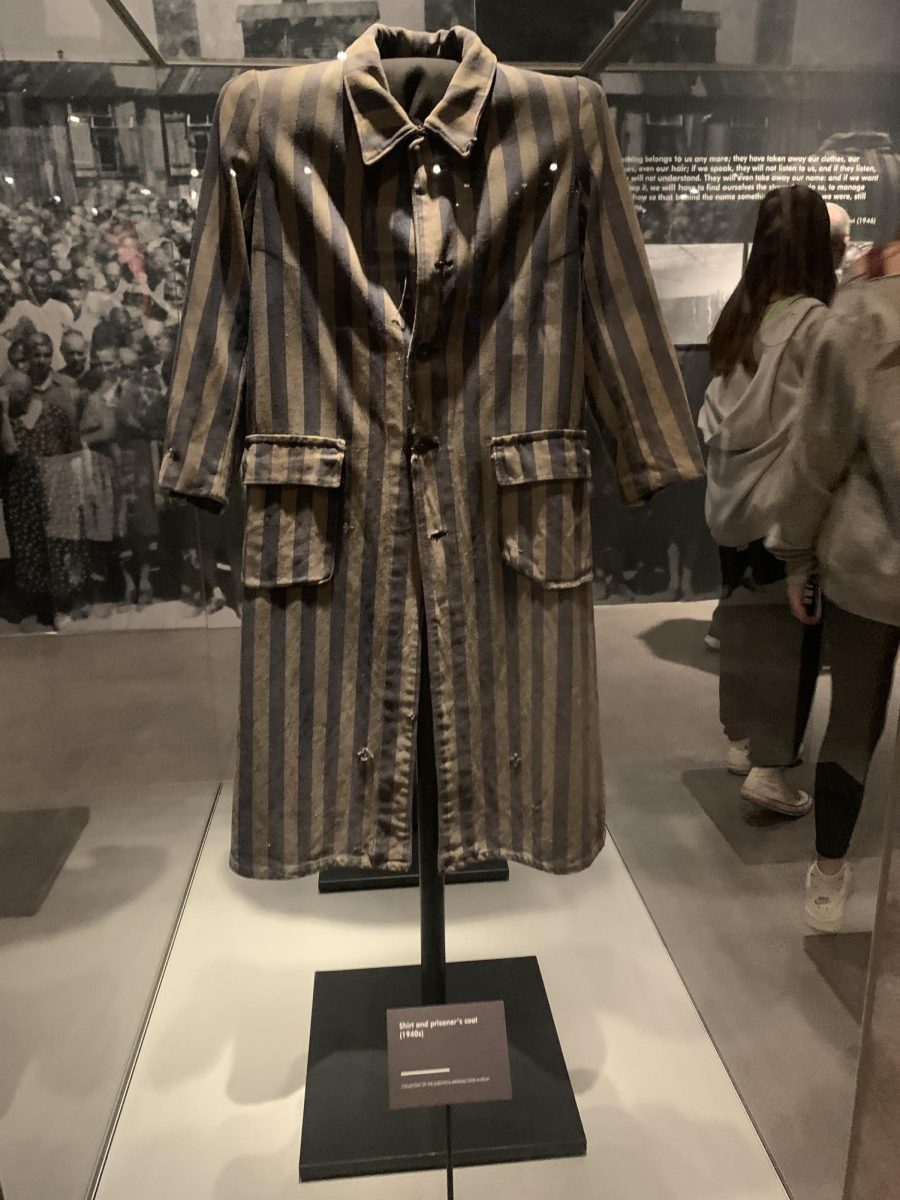On March 1st, roughly 75 students in the freshman class of Scituate High School visited the Auschwitz exhibit in Boston. The exhibit, Auschwitz. Not Long Ago. Not Far Away will be in Boston from March 1st to September 2nd. The exhibit illustrates the human experience of the Holocaust in Auschwitz, a Nazi concentration camp located in Oświęcim, Poland. Auschwitz had three parts: Auschwitz I, the arrival point; Auschwitz Birkenau, the main living quarters; and Auschwitz Monowitz, the industrial center.
The exhibit, which traveled all the way from Poland, is located at the Castle Park Plaza and features over 700 objects taken from the actual camp, the majority of which were retrieved by the then U.S.S.R´s Red Army, which prompted the Nazis to evacuate the camp. The collection features audio and visual aids to highlight the personal experiences of victims of the Holocaust, including several survivor accounts.
Among these were pieces of the camp, including electrical fences, barracks, a soup pot, and a replication of the crematorium smokestacks. However, it was the personal items that struck an emotional chord with the SHS visitors. Many students decided to reflect on the ring of Zdenka Fantlova and Arno Levit. “It hit me hard because the concept of love is thrown around carelessly, but here, it really shined. She would rather die than leave her ring behind because it stood as a promise that she would meet her lover again,” student Sully O’Sullivan said.
Each artifact is paired with a description and sometimes even a video explaining its history. One that stood out was the fake showerhead discovered circa 1943. This shower head was found around the crematorium’s two gas chambers. Gas chambers were devices of mass murder that could kill several hundred people at once and thousands in a day. They were disguised as showers to make people undress and then enter. People were selected for these chambers based on appearance, mainly at their arrival at Auschwitz I. They were killed in the chamber by Zyklon B, a poison that interferes with cellular respiration. The showerheads, which inmates thought were to clean and purify, served a morbid purpose, acting as instruments of trickery. They became a premortem sight to all who gazed up at them as the gas filled the room and their lives slipped away.
The goal of the exhibit, as stated on the website, is to educate people about the horrors that were shielded from the world and make sure that the stories of the victims, especially with recent uprisings in antisemitism, are not forgotten. “Holocaust denialism is a major threat to the efforts to combat all forms of hate and discrimination, and proper education is the solution,” said Troy Collins, Executive Vice President of NEON, the company responsible for bringing Auschwitz. Not Long Ago. Not Far Away to Boston. “Exposing young people to this exhibition will give them first-hand knowledge and deep understanding of the atrocities that occurred at Auschwitz and other concentration camps. This represents the tragic human consequences that come with bigotry. It’s important for folks from Scituate and beyond to see this exhibition, particularly our school-aged youth who continue to gain world-view.”
This relevancy prompted SHS 9th grade World History teachers Micheal Matisoff and Kelly Trayers to secure tickets for the entire class.
The students have recently completed their lesson on dehumanization, the Holocaust, and genocide, including the Israel-Palestine conflict, which could be responsible for a rise in antisemitism. As a part of the lesson, students read Night by Elie Wiesel, a victim of the Holocaust and an Auschwitz survivor, to learn about the human experience. Wiesel shared his experience at the camp and his purpose for writing his book that will embed itself in the hearts of all who read it: “For the survivor who chooses to testify, it is clear: his duty is to bear witness for the dead and for the living. He has no right to deprive future generations of a past that belongs to our collective memory. To forget would be not only dangerous but offensive; to forget the dead would be akin to killing them a second time.”
